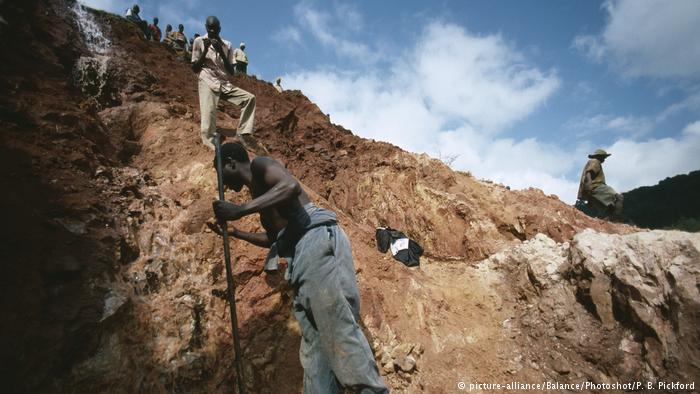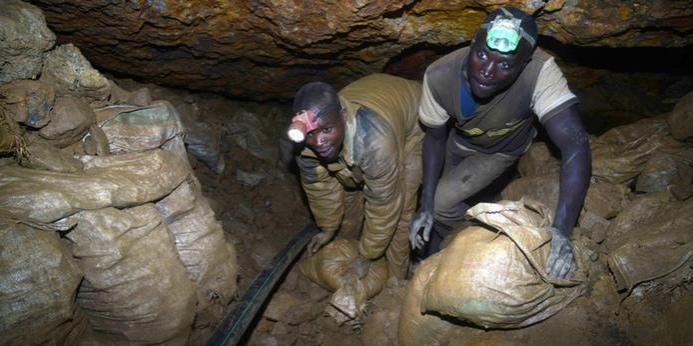Mozambique, Angola and Equatorial Guinea take spotlight at African Energy Week
CIP: Weak laws facilitate corruption in mining sector in Mozambique

DW (File photo)
A CIP study released this Wednesday (25.07) maintains that lack accountability and transparency in the granting of licenses, authorisations and contracts in the mining sector are the source of corruption, with the main vulnerability non-compliance with deadlines.
The evaluation identified 22 potential risks, 13 of them ‘high impact’ and likely to occur in Mozambique. One of the risk factors is the centralising of allocation and monitoring of licenses in the hands of a minister – in this case, the Minister of Mineral Resources and Energy – as provided by the legislation. The minister may be subject to external interference, having been appointed on the basis of political trust.

Similarly, Mozambican law attributes excessive decision-making power concerning the timing and duration of each stage of the licensing process to civil servants. The study reports cases of license applications submitted within at the same time obtaining answers at intervals ranging from three months to two years.
“This demonstrates that in some ways, depending on who you are and the political power and influence you have, the mining license application can be approved quickly. This is not good in a sector that can contribute much more to the coffers of the State,” CIP director Edson Cortes says.
The CIP also notes that, because companies associated with the political elite are linked to the mining sector, civil servants may be subject to external interference. The presence of the Mozambican political elite and civil servants in the mining sector and the fact that assets are not disclosed suggest that there are many conflicts of interest.
Another point raised by the NGO concerns community consultations and resettlement, which, like environmental and social impact studies, continue to be affected by lack of legal enforcement.
Recommendations
The study recommends the de-politicisation of the licensing process, creating the conditions for licenses to be allocated on the basis of publicly known criteria and with the involvement of specialised technical commissions – measures not currently provided for.
The establishment of an independent external team to assess requests for mining concessions, increased coordination between central and local entities in the processing of licensing applications and increased investment in the training of licensing officials would be positive.

The CIP also recommends the establishment of clear and publicly accessible criteria for partnerships between foreign and domestic companies in which it is clear that “publicly exposed persons” should be excluded from these partnerships, in order to prevent conflict of interest.
Failure to comply with the licensing deadlines creates an opportunity for companies to offer bribes to mining registry employees in exchange for expedited requests.
“It is of interest to us that time should be taken into account when applying for licenses, since money has its cost in relation to time,” Mozambique Confederation of Economic Associations representative Egídio Leite says.
Leite also stressed the importance of accountability in the licensing process chain, but considers that this is not an easy task.
“It’s not easy for someone sitting in the document reception office and suddenly a PEP [person politically exposed] person appears. We have to look at this and we have to be careful to analyse this situation,” he notes.











Leave a Reply
Be the First to Comment!
You must be logged in to post a comment.
You must be logged in to post a comment.